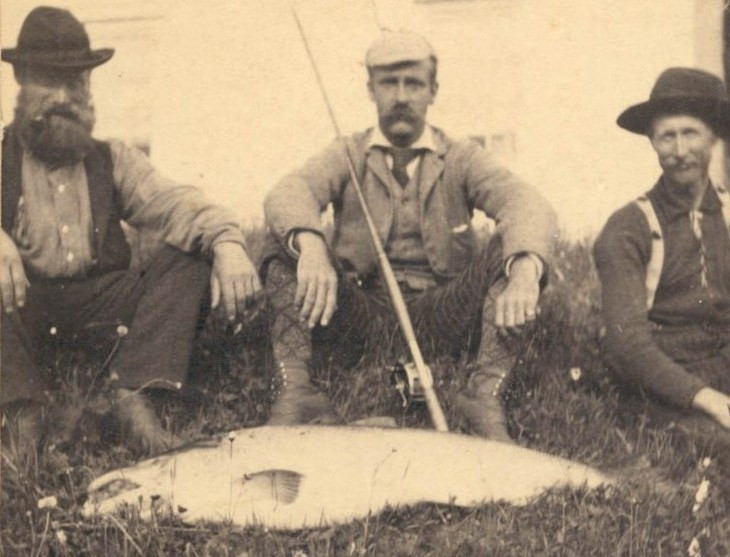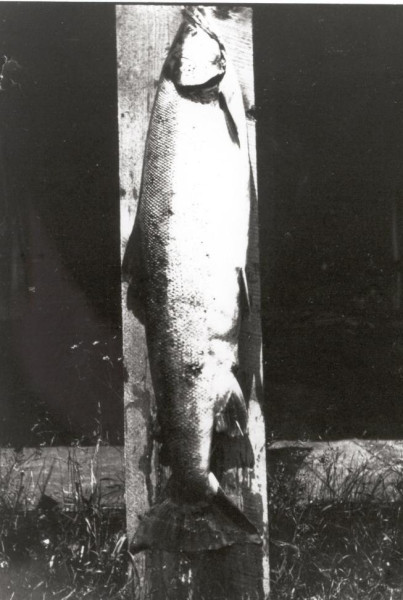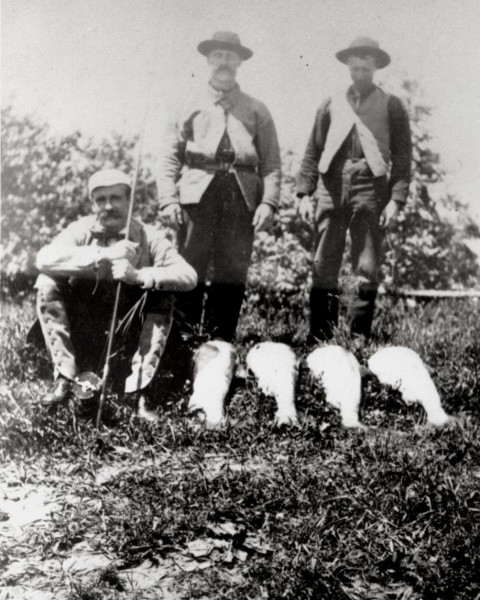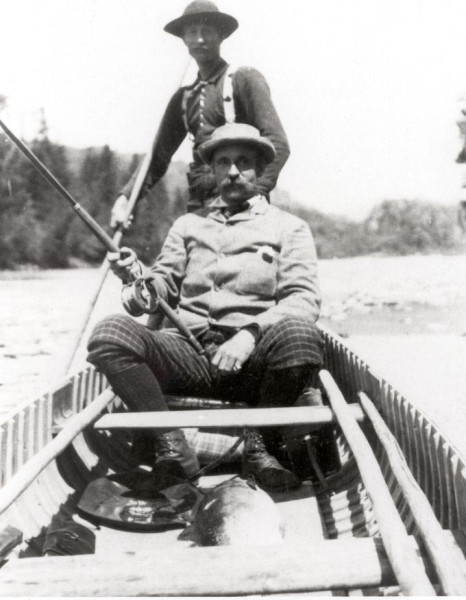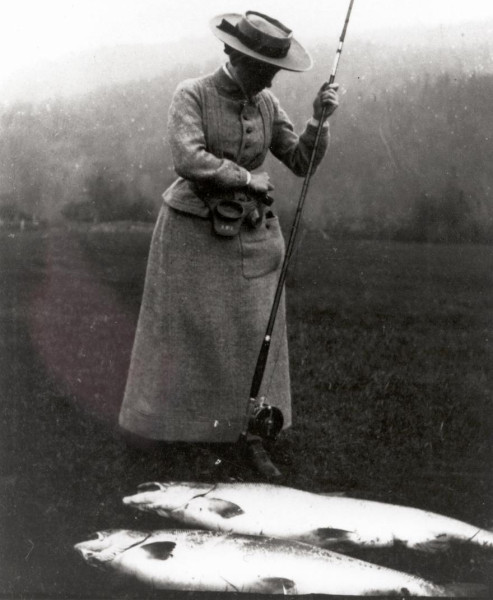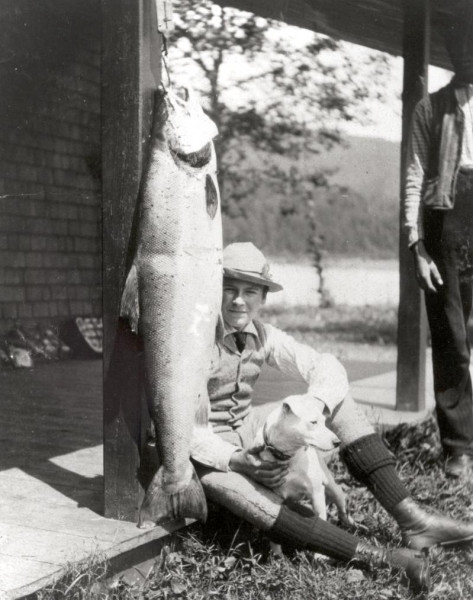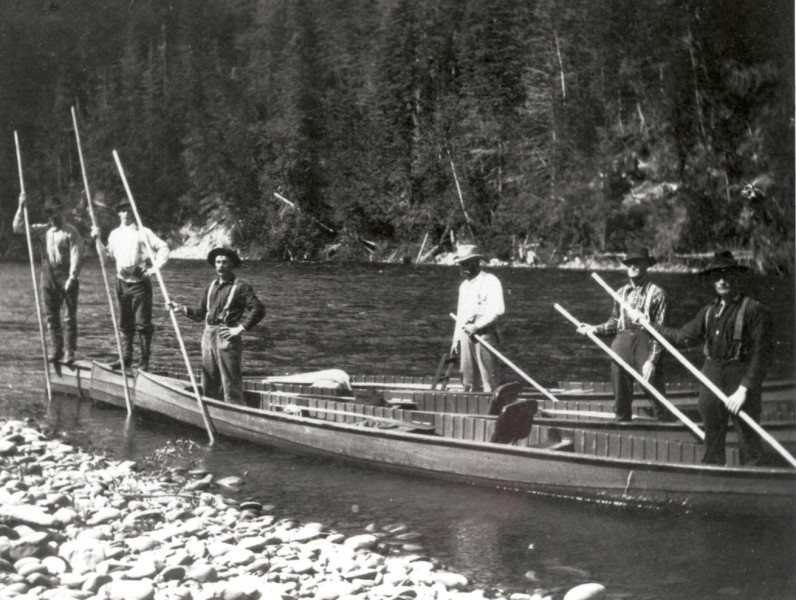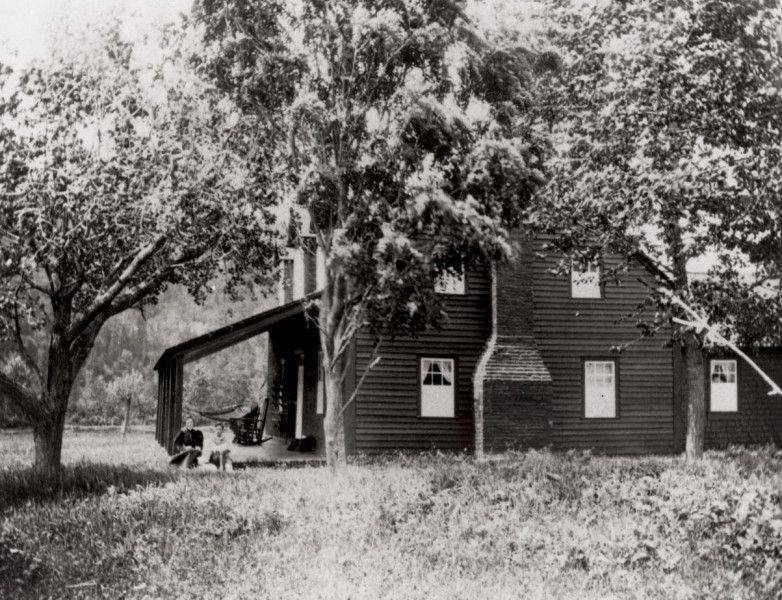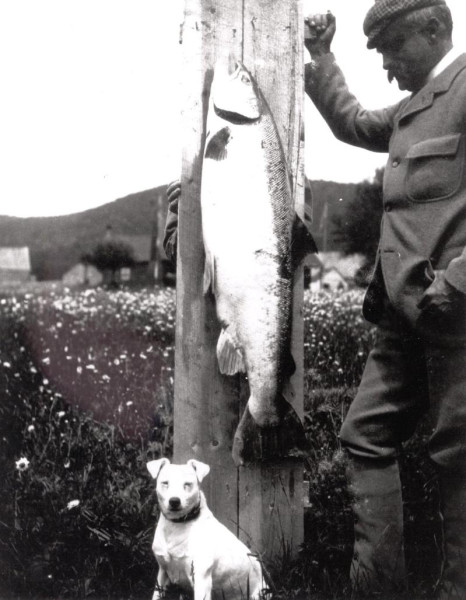“Such a beautiful country is not an accident. God must have created this wonderful wilderness, where all is happiness, all is peace.”
Fishing on the Grand Cascapedia by Edmund W. Davis, 1904.
A gun shot was fired on the morning of June 19, 1908. The sound must have disturbed the tranquil stillness of a morning on the Cascapedia River.
Within moments, the lifeless body of Edmund W. Davis lay slumped in a large oak rocking chair on the front porch of Red Camp. This tragedy ended the life of one of the infamous salmon anglers of the world-famous Grand Cascapedia River.
Davis had been coming to the Cascapedia River for thirteen years. Born in Providence, Rhode Island, in 1853, he was the grandson of Perry Davis, inventor of the famous Painkiller medication. The Davis Painkiller was described as a "vegetable elixir" and was widely regarded as a wonder drug. The concoction was created in 1840 and is believed to have been the first nationally advertised remedy specifically for pain resulting from many disorders.
The “Painkiller” enabled Edmund’s grandfather to accumulate a great fortune; and permitted Edmund to lead a privileged life. Edmund Davis attended Harvard University for two years and later became involved in the family business. At the young age of 27, he inherited a share in his family’s fortune, which made it easier for him to enjoy his real interests.
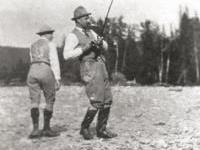 Edmund Davis' love for hunting and fishing took up much of his time and he enjoyed the social aspect that these sports brought to his life. In the 1880s, fishing on Canadian rivers was becoming a well-established sport that required money and connections to acquire the rights for the privilege to fish. This lifestyle brought Davis to the Cascapedia where he owned a private fishing camp called Red Camp.
Edmund Davis' love for hunting and fishing took up much of his time and he enjoyed the social aspect that these sports brought to his life. In the 1880s, fishing on Canadian rivers was becoming a well-established sport that required money and connections to acquire the rights for the privilege to fish. This lifestyle brought Davis to the Cascapedia where he owned a private fishing camp called Red Camp.
According to some of the local folklore, the employees had heard an argument in the camp the night before. Who was arguing? Some say that Davis was going through a separation from his wife Maria at the time. Others say that it was Davis's son Steuart that most likely killed him, possibly to collect his inheritance. Was there the possibility that Davis, who seemingly led a privileged life, choose to end his days by committing suicide?
There is an old saying that dead men tell no tales. Therefore, we can only speculate about what happened to Edmund W. Davis. It is most likely that he will continue to be the topic of conversation and the mystery of his death will continue to fascinate us. The rocking chair where his body was said to have been found after the shooting, can be seen at the Cascapedia River Museum and remains a constant reminder of his link to the heritage of this river.
